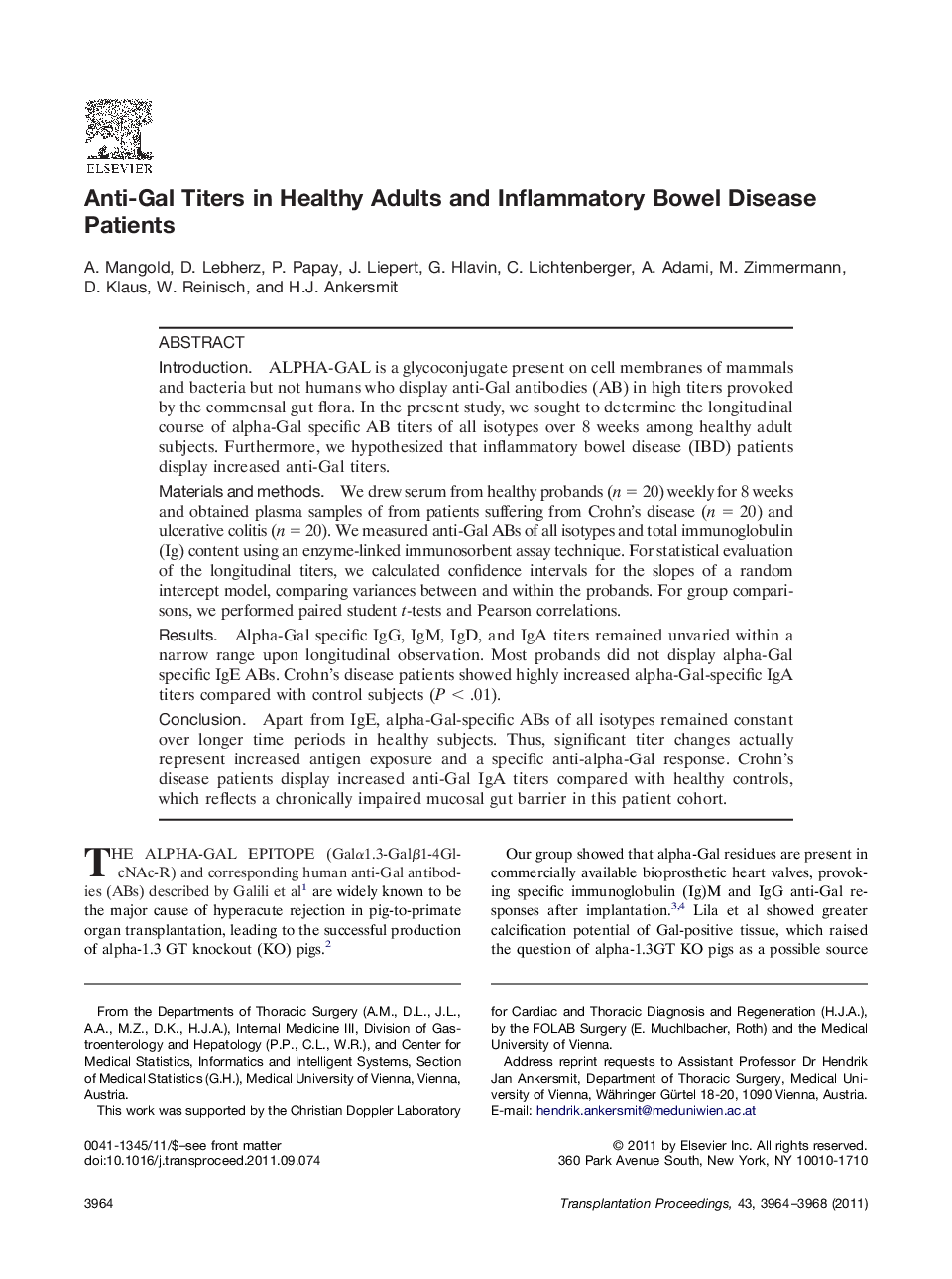| Article ID | Journal | Published Year | Pages | File Type |
|---|---|---|---|---|
| 6249055 | Transplantation Proceedings | 2011 | 5 Pages |
IntroductionALPHA-GAL is a glycoconjugate present on cell membranes of mammals and bacteria but not humans who display anti-Gal antibodies (AB) in high titers provoked by the commensal gut flora. In the present study, we sought to determine the longitudinal course of alpha-Gal specific AB titers of all isotypes over 8 weeks among healthy adult subjects. Furthermore, we hypothesized that inflammatory bowel disease (IBD) patients display increased anti-Gal titers.Materials and methodsWe drew serum from healthy probands (n = 20) weekly for 8 weeks and obtained plasma samples of from patients suffering from Crohn's disease (n = 20) and ulcerative colitis (n = 20). We measured anti-Gal ABs of all isotypes and total immunoglobulin (Ig) content using an enzyme-linked immunosorbent assay technique. For statistical evaluation of the longitudinal titers, we calculated confidence intervals for the slopes of a random intercept model, comparing variances between and within the probands. For group comparisons, we performed paired student t-tests and Pearson correlations.ResultsAlpha-Gal specific IgG, IgM, IgD, and IgA titers remained unvaried within a narrow range upon longitudinal observation. Most probands did not display alpha-Gal specific IgE ABs. Crohn's disease patients showed highly increased alpha-Gal-specific IgA titers compared with control subjects (P < .01).ConclusionApart from IgE, alpha-Gal-specific ABs of all isotypes remained constant over longer time periods in healthy subjects. Thus, significant titer changes actually represent increased antigen exposure and a specific anti-alpha-Gal response. Crohn's disease patients display increased anti-Gal IgA titers compared with healthy controls, which reflects a chronically impaired mucosal gut barrier in this patient cohort.
